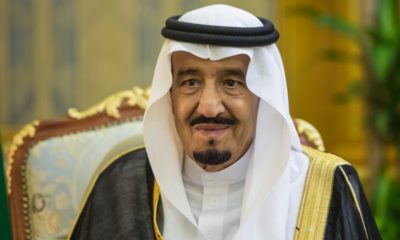- Euro-Pound Parity Call Reverberates as Morgan Stanley Joins HSBC
What once seemed a highly unlikely call on euro-sterling is gaining momentum, with two of the world’s leading banks predicting that Europe’s shared currency will attain and even go beyond parity with the pound for the first time.
Morgan Stanley sees the pair at 1.02 by the end of March, which represents a 12 percent gain for the euro from current levels, while HSBC Holdings Plc is sticking to its forecast that the euro will trade one-for-one against the pound by year-end. Standard Bank strategist Steve Barrow said “it’s not a huge leap of faith to suggest we could get up to the parity area.” It would be “foolhardy” to rule out the prospect of the euro reaching the one-pound mark, according to Rabobank International’s senior currency analyst Jane Foley.
The euro has surged more than 6 percent against the pound this year amid speculation that the European Central Bank will announce a tapering of bond purchases by autumn. By contrast, the pound is being held down by uncertainty surrounding Brexit negotiations.
“In euro-sterling we’ve had a very strong conviction and it’s one of the biggest forecasts I ever remember making on a major currency,” David Bloom, HSBC’s London-based global head of currency strategy said in an interview last week. That’s “a 20 percent move and that’s quite something. It’s very unusual that we make such, what was at that time, an outrageous forecast” but “we are roughly half way there and we believe in it,” he said.
Bloom first made his parity call a year ago, when the euro was around 83 pence. HSBC predicts the euro and the pound ending this year at $1.20, which are both “strong views,” he said.
Euro-sterling was at 0.9084 as of 3:07 p.m. in London, having reached 0.9119 on Aug. 11, its strongest level since October. The pair reached a record 0.9803 in December 2008.
Diverging Politics
Since France elected pro-European leader Emmanuel Macron in May, risks of the currency bloc fragmenting have diminished. In addition, euro-region economic data are showing signs of improvement. In contrast, Brexit negotiations are far from clear and that’s weighing on the pound. That’s the main concern for Standard Bank’s Barrow.
It all “depends a lot of how the Brexit negotiations go,” he said. “On euro-sterling previously we thought the 90-92 area might be the peak, but obviously now I no longer do.”
While Morgan Stanley’s parity call is partly due to a bullish-euro outlook, the U.K. currency is “likely to weaken in its own right, driven by weak economic performance, low real yields and increasing political risks,” Hans Redeker, head of foreign-exchange strategy, wrote in a client note dated Aug. 10.
Minority View
Still, the number of analysts calling for parity in the pair is relatively small. Of the 62 participants in a Bloomberg currency survey, only HSBC and Morgan Stanley see the pair at or above 1.00 by mid-2018.
For ING Groep NV’s Viraj Patel, the recent move higher in the euro versus the pound is more of an “overshoot, rather than a broader trend toward parity.”
There are risks that “over-exuberant EUR markets are front-running ECB QE tapering, as well as fading cliff-edge Brexit risks, limit the scope to which EUR/GBP can move materially beyond 0.90,” he wrote in a client note last week. “Domestic and geopolitical uncertainties may see us trade in the 0.9000-0.9150 range in the near term, with greater risks of a downside breakout.”
Sterling is “a different animal to most currencies,” as politics overshadows and complicates predicting it, according to HSBC’s Bloom. But when it comes to parity, “we are not a million miles away, so I am still in it.”

 Billionaire Watch3 weeks ago
Billionaire Watch3 weeks ago
 Startups4 weeks ago
Startups4 weeks ago
 News4 weeks ago
News4 weeks ago
 News4 weeks ago
News4 weeks ago
 Bitcoin4 weeks ago
Bitcoin4 weeks ago
 Naira4 weeks ago
Naira4 weeks ago
 Forex3 weeks ago
Forex3 weeks ago
 Treasury Bills4 weeks ago
Treasury Bills4 weeks ago
























